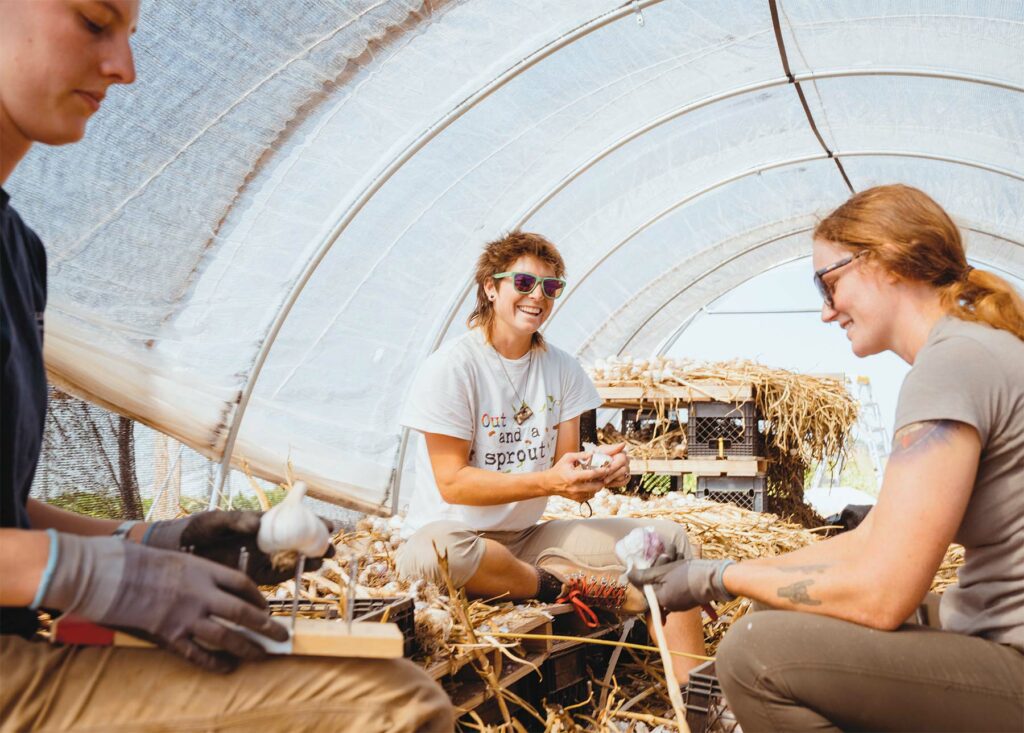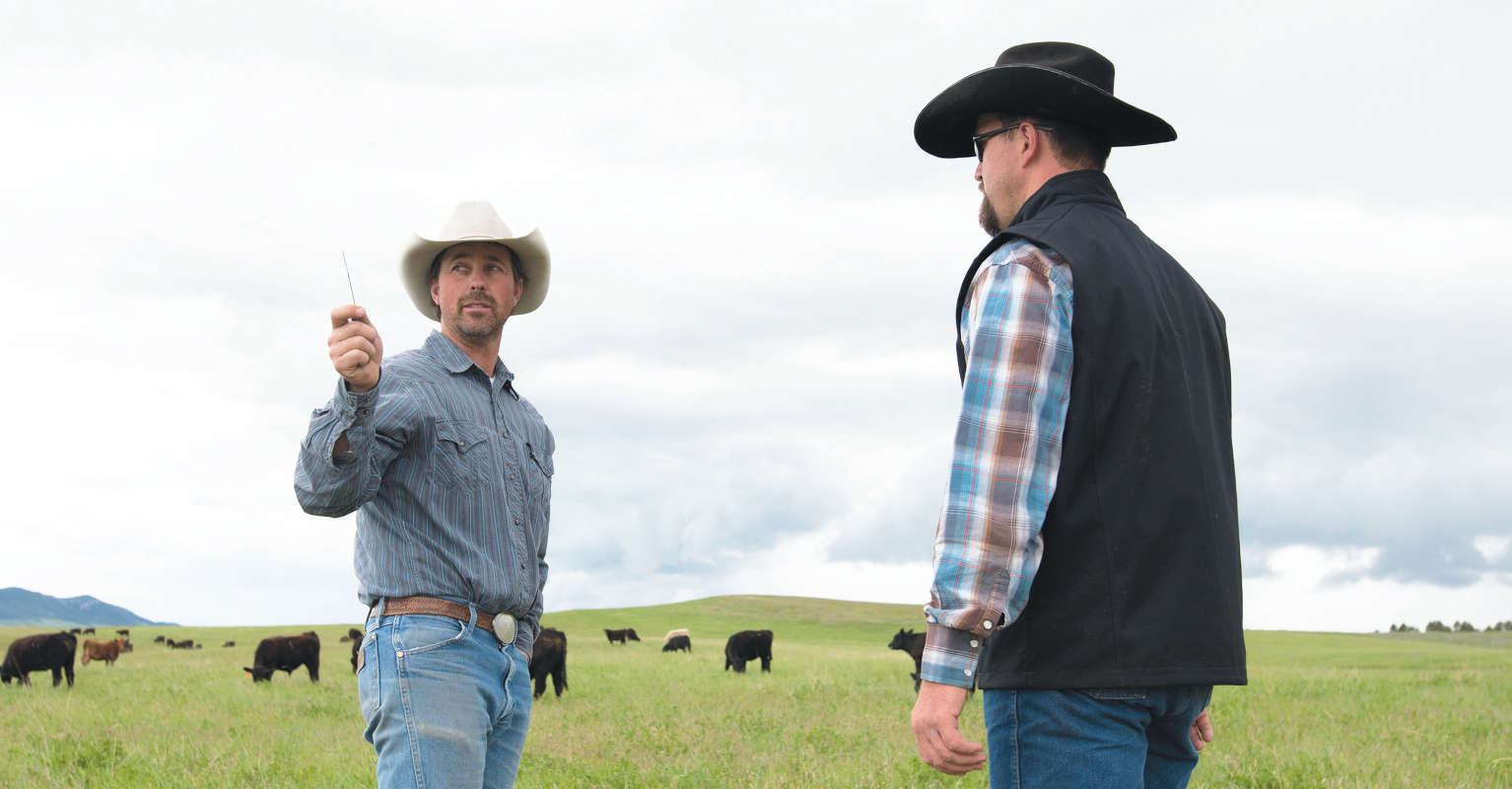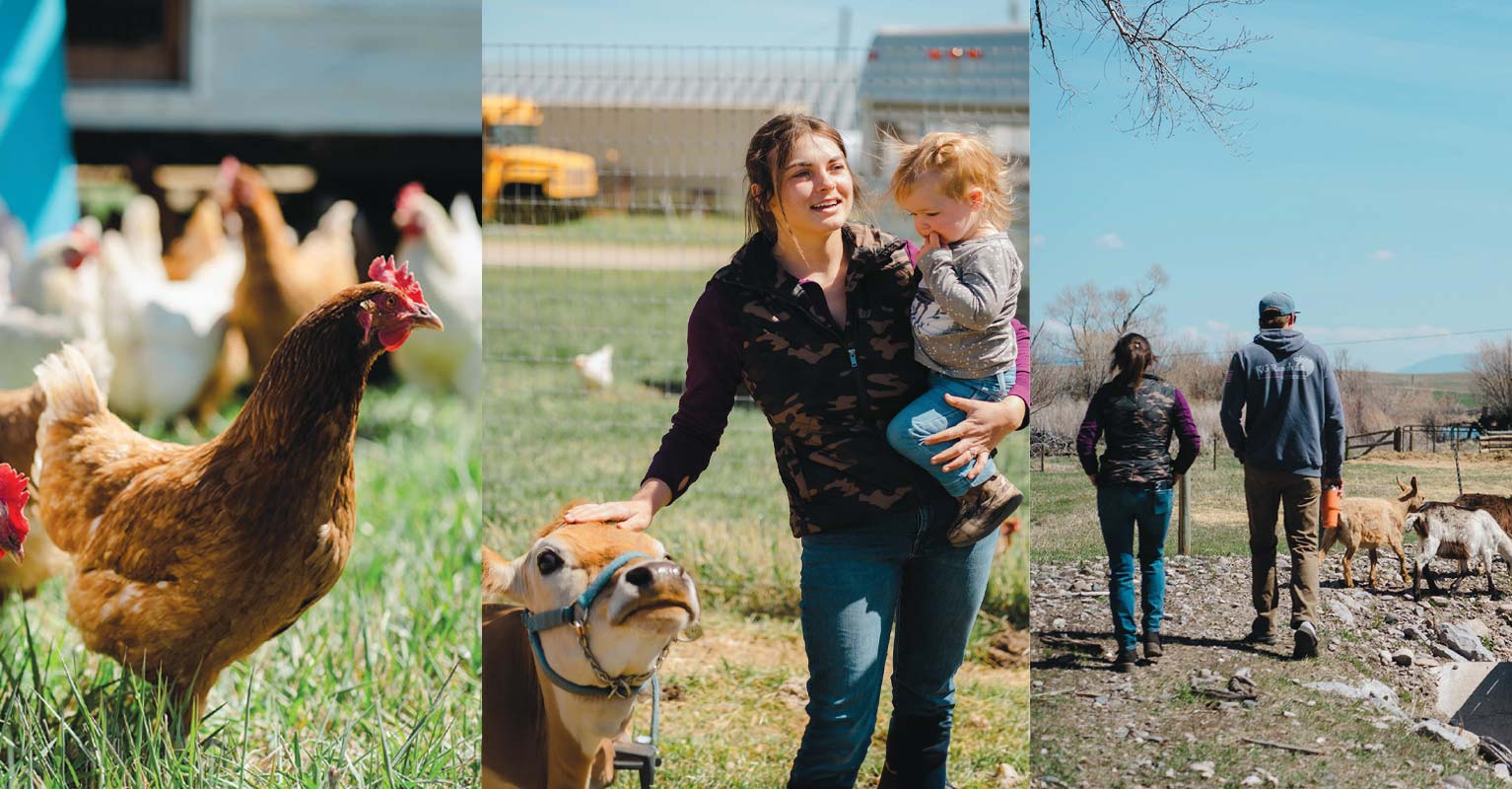Chance Farm Embraces Permaculture Ethos
Most farmers understand the ebb and flow of each growing season. They come to anticipate the pests, the unexpected frosts, hail damage, bumper crops, low yields, and long hours. There might be a new plot of land to cultivate, new seed varieties to try, and soil health that needs improving.
For Josh Chance, owner of Chance Farm in Gallatin Valley, it’s the details that keep him excited and passionate about his work on the farm. Chance and his girlfriend were living in Denver when he decided to attend a permaculture course in Boulder, Colorado. This course would change the trajectory of his life, and the years that followed led him down a path of discovery and learning through internships and jobs around the U.S.
An Airstream became Chance’s home for many of these years while he lived in places like Vermont, Texas, and finally Montana. He garnered knowledge from farms and leaders in the permaculture world such as Ben Falk, a permaculture gardener and teacher in Vermont. With Falk, Chance helped take care of a 100-acre property with a crew that planted a variety of trees, grew vegetables, and remedied the soil. In Texas, he assisted with the harvest of over 30 million pine tree seedlings on a 35-acre pine tree nursery. An internship in Montana was what finally brought him to the Treasure State, where he worked with Cloud Nine Farm outside of Wilsall, Amaltheia Organic Dairy in Belgrade, and Strike Farms near Bozeman.
These experiences prompted Chance to focus on growing vegetables using the permaculture ethos: taking care of the land by improving soil composition while also taking care of the people who help farm it and creating a high-quality product that can be shared at a fair price. In 2012, Chance began actively pursuing a career in small-scale agriculture.
“It was so cool to see plants grow, to pick the vegetables and taste the differences, and to see how the soil changes as you care for it.” —Josh Chance, owner of Chance Farm

“I began falling in love with the growing process,” he says. “It was so cool to see plants grow, to pick the vegetables and taste the differences, and to see how the soil changes as you care for it. I’m fascinated by how plants succeed and flourish when provided the conditions they need.”
Chance Farm launched in 2018 on a 2-acre lot with one greenhouse and several tunnels to grow vegetables. Chance’s business goal has been to use organic practices to grow high-quality vegetables for local customers. “I want to grow crops that are happy, by caring for them like a person would care for themselves or for their child,” he says.
Permaculture really begins with understanding nature—and working with her rather than against her. Originally defined as “permanent agriculture,” the practice is focused on land stewardship. What that looks like in practice is the use of farming techniques that create low soil disturbance and adding compost produced on-site to increase soil health. Rather than importing fertilizer, the farm provides for its own needs in a closed-loop system that turns waste into resources.
In the fall of 2021, Chance began preparing ground at a new location south of Bozeman where several growing tunnels form lines across the property. Stepping inside these tunnels is reminiscent of the sultry humidity and temps of the South, making for a perfect growing atmosphere for the season’s new plants. Last year, Chance completed his fi rst growing season at the property and this year, he plans to grow over 30 varieties of vegetables. He sells them wholesale to local restaurants and to the public through CSAs, a farm stand, and at Town & Country grocery stores.
The crew that helps at Chance Farm is small and mostly seasonal. Chance uses the Community Food and Agriculture Coalition to connect with potential farm laborers and he hires up to ten people for the summer season to help with all aspects of vegetable production. He works hard to foster an environment that is not just healthy for the plants, but for the people helping as well. This means keeping the work week below 45 hours to provide a good work/life balance, clearly communicating if there’s a need for extra hours during peak season, encouraging growth and development, and providing tasty veggies that can be taken home and enjoyed.
Chance describes the joy he feels in walking between the tunnels, picking tomatoes straight from the vine, and tasting each vegetable when it is as fresh as possible. During growing and harvest seasons, there isn’t much time for him to take the produce home and cook an extravagant meal, but freshly sliced bok choy, zesty dill leaves, and a sprinkle of brown-sugar-flavored fennel pollen is all it takes to enjoy a simple and delicate dinner on the farm.
As most cooks would attest, the most important aspect of cooking is the use of fresh, high-quality ingredients that turn a mediocre meal into an instant classic— no fancy techniques needed. Chance Farm has succeeded in bringing those natural flavors to the Gallatin Valley through an intentional care for the land and for people.




